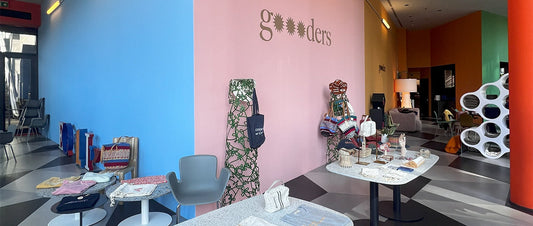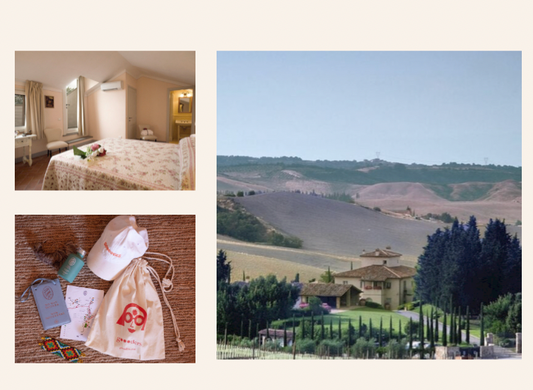'As a brand, we believe that by doing good and looking good, one feels good.' Stefano Funari - Founder of I Was a Sari. Dive in as he shares with us his incredible journey.
When did you decide that you wanted to start your brand?
It all started by a chance encounter at Chor Bazaar, an old flea market in Mumbai and I stumbled across a bundle of vivid saris. At that time I was working with NGO’s with the goal to create women empowerment through sustainable income opportunities and I realised there are NGO’s training women, who are a wasted talent and what better way to get a steady source of raw materials at low cost than these beautiful saris.
With these focuses, the fashion label’s identity became integral to supporting the cause of women empowerment.
What was one of the biggest challenges to get the brand where it is today?
Often ethical brands or brands related to social causes are considered to be for charity and because of this perception, everybody - including the women artisans who are working on it - feel that they don’t really need to focus on quality and aesthetics.
Running an eco-ethical brand with the professionalism of a mainstream brand and convincing all stakeholders involved that we deserve every dollar of our turnover has been the biggest challenge.
Who makes and designs for I Was a Sari?
We do not have an in-house design team. Since our first collection, we have been a design collective, working with designers across the globe. Our first collection was in collaboration with Fashion in Process (FIP), a research collective within the Design Department of Politecnico di Milano University. Since then we have worked in collaboration with various designers and brands to constantly give I Was A Sari a new identity.
Where do you(or your designers) find inspiration for your designs?
A lot of the time the sari has been the inspiration for our designs because each one is unique. The secret of achieving the contemporary look is the combination of materials, prints and colours, and producing an item that keeps in mind the rich heritage of saris. We are very specific about the aesthetics and out of thousands of saris that we go through, only about ten per cent is selected. From the selection of saris to final products, the sari is what actually guides us.
Your brand is very much ethical with lots of positivity. Do you think what you wear can affect your mood?
It is a scientifically proven fact that when you do good, you feel good as well. We have all experienced that in our lives, an act of goodness always brings an inner smile.
As a brand, we believe that by doing good and looking good, one feels good.
What do you hope for the ethical and conscious consumption global movement?
I think the ethical and conscious consumption movement will be led by the millennials and Gen Z. I have a lot of hope from them as they seem to have understood much better than anyone before, that our consumption patterns are not sustainable. They are aware that the future generations and themselves will have to pay the price for the linear consumption patterns, hence they are willing to break that pattern.
My hope is that new generations will embrace a conscious consumption and force the market to apply ethical and sustainable practices too.




